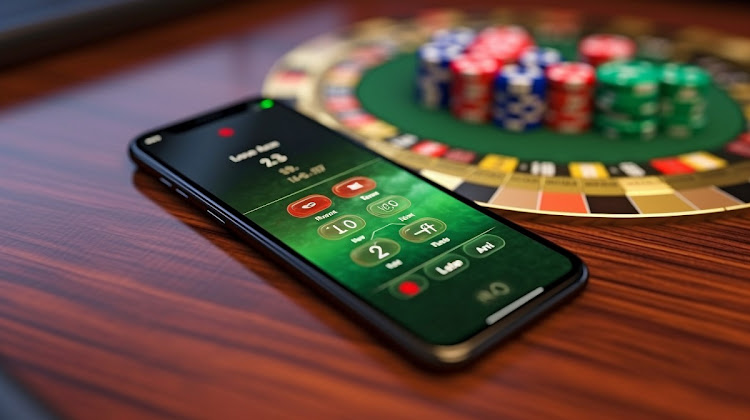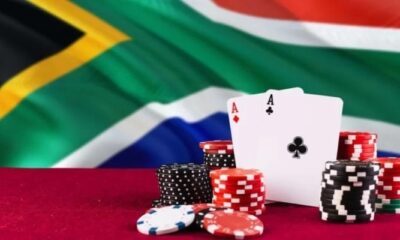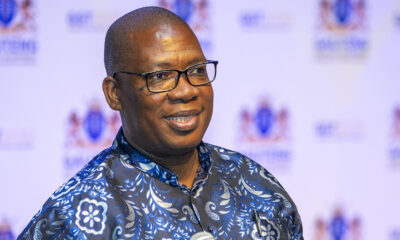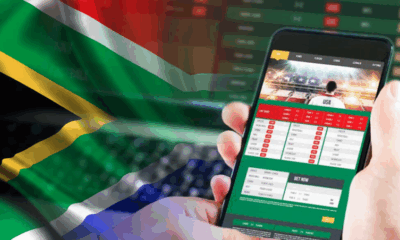News
A Nation of Gamblers: Inside South Africa’s Trillion-Rand Betting Boom and Its Human Cost

A Nation of Gamblers: Inside South Africa’s Trillion-Rand Betting Boom and Its Human Cost
When taxi driver Sipho M placed his first online bet during the dark days of lockdown, he wasn’t chasing luxury he was trying to survive. The casinos were shuttered, fares had vanished, and the streets were silent. “Everyone was talking about betting,” he recalls. “It seemed harmless, just a small bet on a football match.”
Five years later, Sipho’s story has become South Africa’s story.
In the 2024/25 financial year, South Africans wagered a staggering R1.5 trillion, a jump from R1.1 trillion the year before. According to the National Gambling Board (NGB), the industry’s gross gambling revenue rose from R59 billion to R75 billion, while the share of adults who gamble has doubled since 2017 to nearly 66%. Gambling now contributes 0.83% of the country’s GDP, an impressive number that masks a growing national crisis.
The Pandemic That Never Ended
Lungile Dukwana, acting CEO of the NGB, says this new era of gambling was forged during the pandemic.
“When land-based casinos were closed, online betting was the only option left,” Dukwana explains. “That shift became permanent.”
The convenience of mobile betting, no travel, no queues, just a few clicks, turned gambling into an everyday habit for millions. “There are no transaction costs,” he says. “And with constant advertising, people are made to believe they can win big.”
What started as entertainment has, for many, become a coping mechanism. Amid rising unemployment and food insecurity, gambling offers a dangerous illusion of escape.
An Economic Giant Built on Risk
There’s no denying the industry’s economic impact. The gambling sector sustains jobs, boosts provincial revenues, and contributes billions in taxes. But Dukwana warns against celebrating too soon.
“Whilst gambling contributes to GDP, it must be balanced with efforts to reduce social harm,” he cautions. “For some, gambling becomes a way to survive hardship but it ends up deepening it.”
He notes that low-income earners, the unemployed, and even social-grant recipients are being drawn into betting. “It starts with hope and ends in despair,” Dukwana says. “Household essentials are being sacrificed for bets that rarely pay off.”
Law Enforcement Joins the Table
Behind the glitz of legal operators lies an underworld of unlicensed platforms preying on desperate players. Earlier this year, the Hawks’ Priority Crime Specialised Investigation Unit cracked down on an illegal gambling ring in Pretoria’s North Park Mall, seizing over R11,000 in cash and electronic equipment.
“The operation shows our commitment to safeguarding communities from illegal gambling,” said Lieutenant Colonel Lloyd Ramovha of the Hawks. “We’ll continue targeting outlets and online sites that exploit vulnerable people.”
Dukwana echoed the warning: “Unlawful online platforms pose serious risks, fraud, unfair practices, and no consumer protection. Players must understand: these sites are illegal for a reason.”
Political Alarm Bells
In Parliament, gambling’s meteoric rise has triggered alarm. RISE Mzansi MP Makashule Gana didn’t mince words when he called the trend a “national public-health crisis.”
“South Africans spent R1.5 trillion this year on gambling,” Gana said. “Operators made R75 billion, but the state collected only R5.8 billion in taxes. Meanwhile, families are being destroyed.”
Gana has urged the Trade and Industry Ministry to impose advertising limits, crack down on illegal betting, and channel tax revenue into rehabilitation programmes. “We will stop at nothing until there are gambling reforms in South Africa,” he vowed.
The Moral Fallout
For faith leaders and social workers, the numbers are more than statistics, they’re symptoms of moral decay.
“We are seeing families torn apart,” said Pastor Lesiba Kgwele of the Moral Regeneration Movement in the North West. “Gambling addiction is leading to broken homes, debt, and despair. Even pensioners are losing their life savings chasing hope.”
Kgwele believes that awareness campaigns must go beyond government press statements. “Churches, NGOs, and community groups must join hands. Gambling is not just an economic issue, it’s eating away at the soul of our nation.”
Education Over Prohibition
While moral leaders call for restraint, Dukwana says the NGB’s focus is on responsible gambling, not prohibition.
“The Board runs nationwide education programmes, school visits, and counselling services in partnership with the South African Responsible Gambling Foundation,” he explains. “We reach people at grant pay points, universities, and online.”
He admits, however, that regulation must evolve fast. “Technology moves faster than the law. We need amendments to tackle interactive and illegal online gambling, as well as misleading advertising.”
To tighten enforcement, the NGB and police are pushing to classify illegal gambling as a priority crime, which would speed up prosecutions and asset seizures.
Betting on the Nation’s Conscience
Whether viewed through the lens of economics, politics, or morality, one truth is clear: South Africa has become a nation of gamblers.
For some, like Sipho, it began as a distraction, a small wager to pass time. For others, it’s a livelihood. But for millions more, it’s a trap.
As Dukwana puts it: “Not every gambler is addicted, but every gambler must be responsible. Because if we don’t act now, the social cost will far outweigh the winnings.”
If you or someone you know is struggling with gambling addiction, contact the South African Responsible Gambling Foundation:
📞 Toll-Free Helpline: 0800 006 008
💬 WhatsApp/SMS: 076 675 0710
📧 Email: [email protected]
South Africa’s gambling boom has created billion-rand winners and countless silent losers. The stakes are no longer just financial; they’re social, moral, and deeply human.
{Source: IOL}
Follow Joburg ETC on Facebook, Twitter , TikTok and Instagram
For more News in Johannesburg, visit joburgetc.com



























